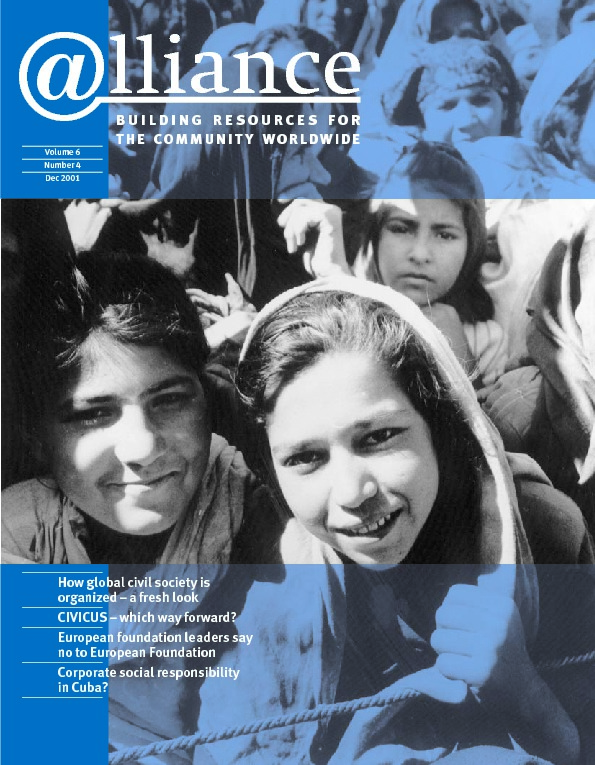People throughout Asia do give to charitable causes, and they give a surprisingly substantial amount. The key finding of a recently completed pioneering project on giving and fundraising in Asia refutes the frequently heard argument that there is no cultural tradition of philanthropy in Asia, or that it is a Western import.
But Asians do not give substantially to NGOs. This finding poses a major challenge to NGO leaders: if it is not simply a matter of poor people not having money to give or not having a tradition of charitable giving, why don’t more people give to NGOs?
Entitled Investing in Ourselves: Giving and Fund Raising in Asia, the project covers Bangladesh, India, Indonesia, Nepal, Pakistan, the Philippines and Thailand. It consists of individual and household surveys on giving in four of the seven countries, case studies on resource mobilization in all seven, and a training manual on financial management for sustainability and accountability. It was carried out by a team of academics, researchers and NGO managers under the auspices of the Asia Pacific Philanthropy Consortium (APPC).[1]
The comparative survey report on giving discloses that the amounts donated to charitable causes through voluntary organizations are substantial, in many cases much more than expected. This finding is replicated in a study of indigenous philanthropy in Pakistan, published a year ago by the Aga Khan Foundation.
In much of Asia, most charitable giving is made through, or for the benefit of, religious organizations and causes. Religion plays a crucial role in the lives of most people – a reality that prior studies of philanthropy have tended to ignore.
The case studies show that many Asian NGOs, working in many fields, have been able to raise significant amounts of local financial support, even in situations of relative poverty, as in much of South Asia. Some excellent examples from the cases are the Banyan in India, the Edhi Foundation in Pakistan, the Dompet Social Umul Quro in Indonesia, and the Raks Thai Foundation in Thailand.
The 112 case studies provide lessons to help NGOs mobilize local resources and diversify their funding support to include non-grant sources such as earned income and individual gifts and contributions. Although the strategies are country-specific, some general points do nevertheless emerge.
- Fundraising is a management process. Organizations that raise funds successfully plan their activities strategically, know their donors and constituencies well, and execute their plans systematically.
- Transparency and accountability are the cornerstones of fundraising. All organizations included in this study mentioned the importance of clear, accurate and transparent reporting to donors and partners.
- Teamwork is an important factor in fundraising success. A clearly defined vision, mission and set of goals are important in creating a fundraising strategy, as are a strong and supportive board, professional and efficient staff, and committed volunteers who work together as a team to promote their cause.
- People give to people, not to causes. Both the survey on giving and case studies revealed that people often give because they know the person who has asked for their support.
- Fundraising is friend raising. Money is not the ultimate goal of fundraising. Personal relationships and a wider constituency base are important if a cause is to be known and supported.
- A variety of fundraising methods maximizes the probability of success. Whatever methods are adopted, organizations should ensure their activities fit with their vision, mission and goals.
The results of the project will be available by the first quarter of 2002. These will include a regional study, seven country studies, three country-specific fundraising training modules and a financial management training module.
1 Funding support from a group of donors that had never worked together before: Jamie: is this what you meant by pioneering: The Asia Foundation, the Asian Development Bank, the Nippon Foundation and USAID.
Jaime Faustino is President of Venture for Fund Raising. He can be contacted by email at jaimef@venture-asia.org
Venture for Fundraising helps other NGOs achieve financial sustainability by providing training and consulting services, research, and public information on fundraising and philanthropy.
For more information on the project, visit http://www.venture-asia.org/appc or e-mail info@venture-asia.org



Comments (0)